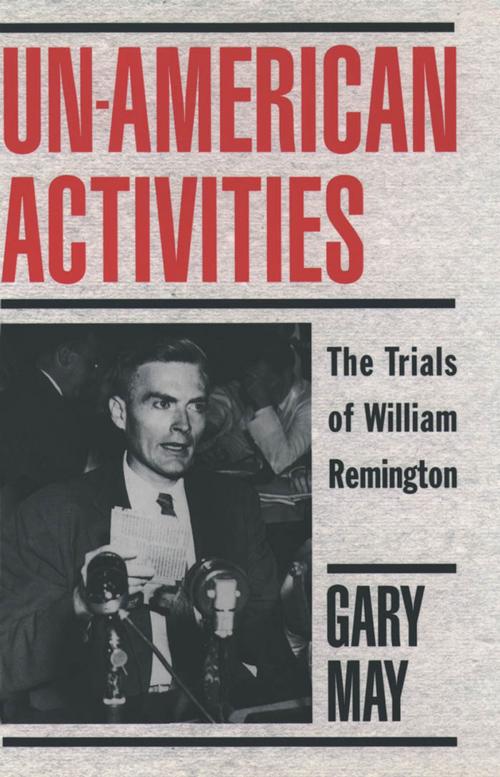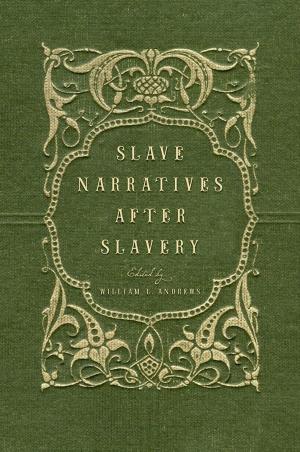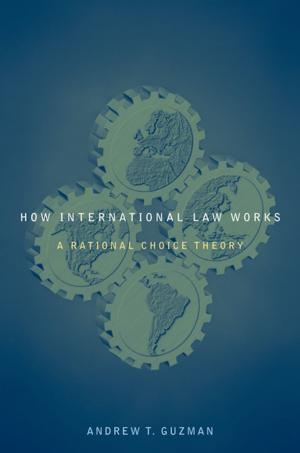| Author: | Gary May | ISBN: | 9780199923335 |
| Publisher: | Oxford University Press | Publication: | June 9, 1994 |
| Imprint: | Oxford University Press | Language: | English |
| Author: | Gary May |
| ISBN: | 9780199923335 |
| Publisher: | Oxford University Press |
| Publication: | June 9, 1994 |
| Imprint: | Oxford University Press |
| Language: | English |
In 1948, William W. Remington was one of the bright young men in the Truman administration. He was tall and handsome, a product of Dartmouth and Columbia. From 1940 on, he had risen through government ranks, serving on wartime boards, the President's Council of Economic Advisors, and eventually as a major official in the Department of Commerce, with a promising future ahead. By 1954, however, Remington was dead--assassinated in his cell by a team of inmates in a high-security Federal prison. In Un-American Activities, historian Gary May tells the fascinating story of William Remington--a story of intrigue, injustice, government corruption, and anti-Communist hysteria. May labored for eight years in reconstructing Remington's case, searching through FBI files, government documents, and waging an epic battle against then-U.S. Attorney Rudy Guiliani to become the first historian to obtain access to grand jury records. The result is a brilliant account of one man's tragic odyssey and a government run amok. Remington's future collapsed in 1948, when he was charged with being a Communist and a Soviet spy. The accuser was Elizabeth Bentley, an admitted ex-Communist herself and a former courier for Soviet spymasters. Remington's life fell into a whirlpool, as he fought government improprieties, illegalities, and the assumption he was guilty. Cleared by government loyalty boards, he was indicted by a grand jury--whose foreman was secretly helping Elizabeth Bentley prepare her memoirs. Remington suffered through two trials for perjury, and the chief witness against him was his own embittered ex-wife. He was convicted and sentenced to the federal penitentiary at Lewisburg, Pennsylvania, where his reputation as a Communist preceded him. But May's account also offers fascinating insight into the depth of Soviet penetration into wartime America: As he follows Remington's life, from the radical circles at Dartmouth and the Tennessee Valley Authority in the 1930s through his Washington career, he finds that Remington may well have been guilty of the charges against him. Gary May is one of the leading historians writing about postwar America. His first book, China Scapegoat, won the Allan Nevins Prize and was hailed as "as well as a novel, as powerful as a good film" by the The Los Angeles Times. Here he brings his analytical and narrative skills to bear on one of the forgotten stories of the McCarthy era, uncovering a gripping tale of espionage, corruption, and personal tragedy.
In 1948, William W. Remington was one of the bright young men in the Truman administration. He was tall and handsome, a product of Dartmouth and Columbia. From 1940 on, he had risen through government ranks, serving on wartime boards, the President's Council of Economic Advisors, and eventually as a major official in the Department of Commerce, with a promising future ahead. By 1954, however, Remington was dead--assassinated in his cell by a team of inmates in a high-security Federal prison. In Un-American Activities, historian Gary May tells the fascinating story of William Remington--a story of intrigue, injustice, government corruption, and anti-Communist hysteria. May labored for eight years in reconstructing Remington's case, searching through FBI files, government documents, and waging an epic battle against then-U.S. Attorney Rudy Guiliani to become the first historian to obtain access to grand jury records. The result is a brilliant account of one man's tragic odyssey and a government run amok. Remington's future collapsed in 1948, when he was charged with being a Communist and a Soviet spy. The accuser was Elizabeth Bentley, an admitted ex-Communist herself and a former courier for Soviet spymasters. Remington's life fell into a whirlpool, as he fought government improprieties, illegalities, and the assumption he was guilty. Cleared by government loyalty boards, he was indicted by a grand jury--whose foreman was secretly helping Elizabeth Bentley prepare her memoirs. Remington suffered through two trials for perjury, and the chief witness against him was his own embittered ex-wife. He was convicted and sentenced to the federal penitentiary at Lewisburg, Pennsylvania, where his reputation as a Communist preceded him. But May's account also offers fascinating insight into the depth of Soviet penetration into wartime America: As he follows Remington's life, from the radical circles at Dartmouth and the Tennessee Valley Authority in the 1930s through his Washington career, he finds that Remington may well have been guilty of the charges against him. Gary May is one of the leading historians writing about postwar America. His first book, China Scapegoat, won the Allan Nevins Prize and was hailed as "as well as a novel, as powerful as a good film" by the The Los Angeles Times. Here he brings his analytical and narrative skills to bear on one of the forgotten stories of the McCarthy era, uncovering a gripping tale of espionage, corruption, and personal tragedy.















